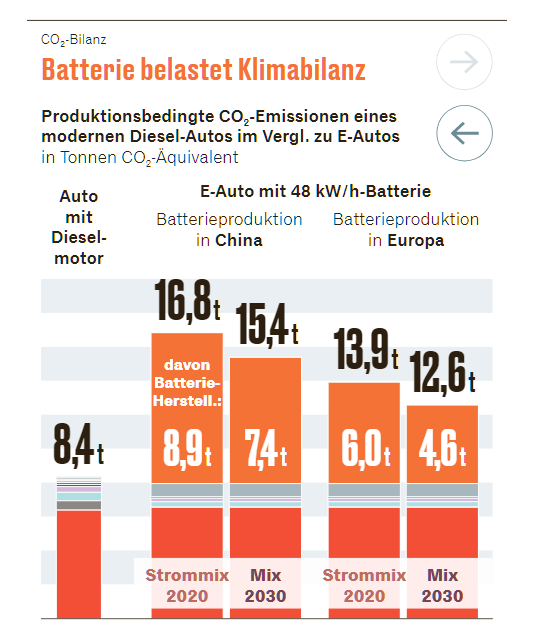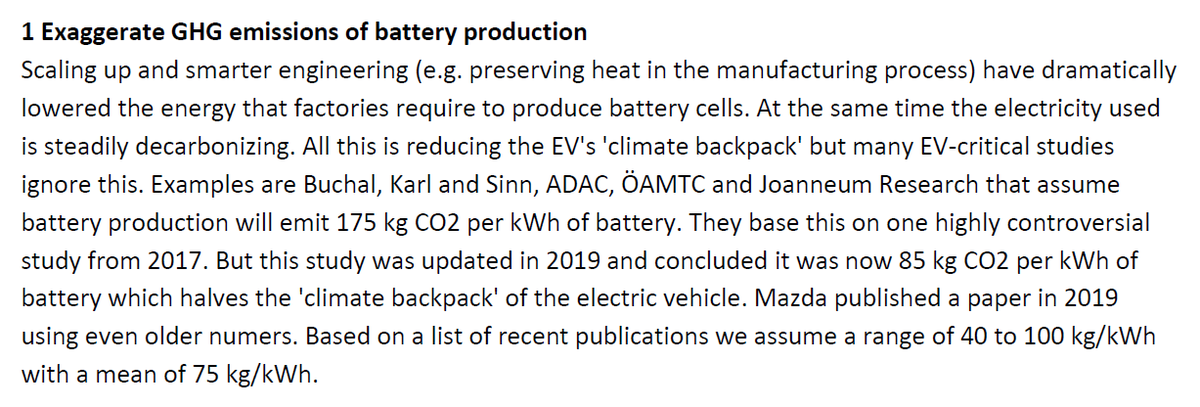German quality newspaper @handelsblatt reports on new anti-EV study by German society of engineers VDI (@VDI_News).
VDI states that electric vehicles emit more CO2 than combustion engine vehicles due to battery production.
But VDI uses wrong numbers for...
battery production.
VDI states that electric vehicles emit more CO2 than combustion engine vehicles due to battery production.
But VDI uses wrong numbers for...
battery production.

For those who don't know me: I research energy systems & mobility at the @TUeindhoven and specialize in comparing CO2 emissions of electric vehicles and combustion vehicles.
My recent study about that in German:
dropbox.com/s/2gwq0yslascu…
and English:
dropbox.com/s/xblk4g7zeboa…
My recent study about that in German:
dropbox.com/s/2gwq0yslascu…
and English:
dropbox.com/s/xblk4g7zeboa…
My main problem with the VDI study is that they use wrong numbers for battery production.
They assume producing a 48 kWh battery emits 8,9t of CO2.
That means 185 kg/kWh (8900kg/48kWh).
They assume producing a 48 kWh battery emits 8,9t of CO2.
That means 185 kg/kWh (8900kg/48kWh).

As I show in my study, emissions per kWh have plummeted in recent years and are now around 75 kg/kWh.
I call this the first of six errors that many anti-EV studies make.
Every real expert in the field knows this by now.
So 8.9t becomes 3.6t. (4.5t worst case.)
I call this the first of six errors that many anti-EV studies make.
Every real expert in the field knows this by now.
So 8.9t becomes 3.6t. (4.5t worst case.)

Before you go "But... but... production in China using coal" you should read my report and understand that the drop is mainly due to factory processes becoming much more efficient as we learn and scale up.
I dug up a footnote in a study I debunked that nicely illustrates this.
I dug up a footnote in a study I debunked that nicely illustrates this.

• • •
Missing some Tweet in this thread? You can try to
force a refresh











